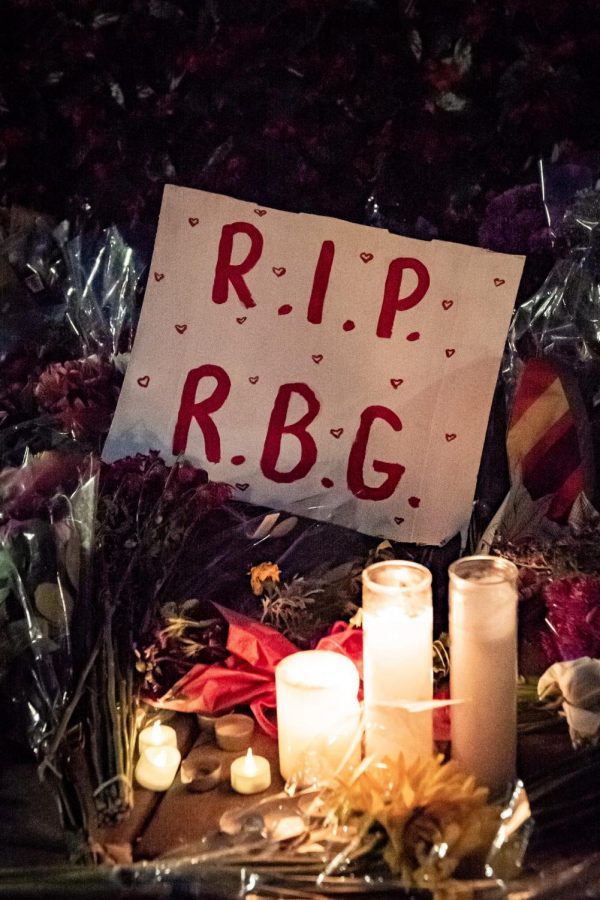Ruth Bader Ginsburg’s Death Shocks the Nation
October 9, 2020
Justice Ruth Bader Ginsburg died at 87, on Friday, Sept. 18. The Supreme Court announced her death on Friday, revealing that she died from complications of her pancreatic cancer. Ginsburg died in her home in Washington, D.C. with family surrounding her, she was later buried in Arlington National Cemetery where she lies along with others who greatly impacted this country, including John F. Kennedy, William Howard Taft, and past Supreme Court justices.
“Ruth Bader Ginsburg’s death is tragic, however she did so many great things to help this country,” junior Alex Bardsley said.
Ginsburg was the second female Supreme Court justice in America. She was born in 1933 in Brooklyn, New York. Ginsburg taught at Rutgers University Law School and later taught at Columbia University, where she became their first female professor. She served as the director of the Women’s Rights Project of the American Civil Liberties Union during the 1970s, and was appointed to the U.S. Court of Appeals for the District of Columbia in 1980. Appointed to the United States Supreme Court by President Bill Clinton in 1993, she continuously argued for women’s rights, in cases such as United States v. Virginia.
During the 1970s, Ginsburg served as the director of the Women’s Rights Project of the American Civil Liberties Union, in which she argued six landmark cases on gender equality before the U.S. Supreme Court. Ginsburg strongly believed that the law was “gender blind” and should be in place for everyone no matter their gender. Among the other five cases she won, Ginsburg pushed for the Social Security Act, which granted benefits to windows not widowers.
Ginsburg continued to sit in her Supreme Court seat after she was diagnosed with pancreatic cancer in Jan. 2009. However, she was again diagnosed with lung cancer in Nov. 2018. Although she was fighting for her life, she also fought for others as well. Ginsburg decided to continue being a Supreme Court justice so she could fight for women’s rights in America. “I’m very thankful for Ruth Bader Ginsburg because she has made this country a better place for women and has fought for us in sickness and in health,” freshman Michelle Bradly said.
“Women belong in all places where decisions are being made… it shouldn’t be that women are the exception,” Ginsburg said in one of her arguments before the U.S. Supreme Court.








